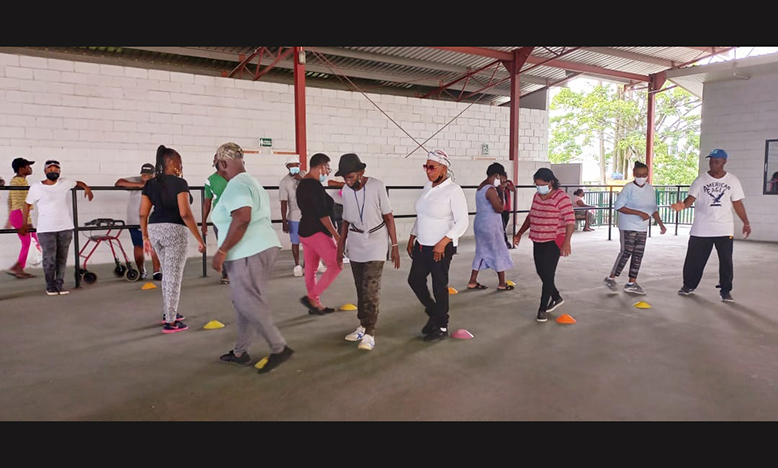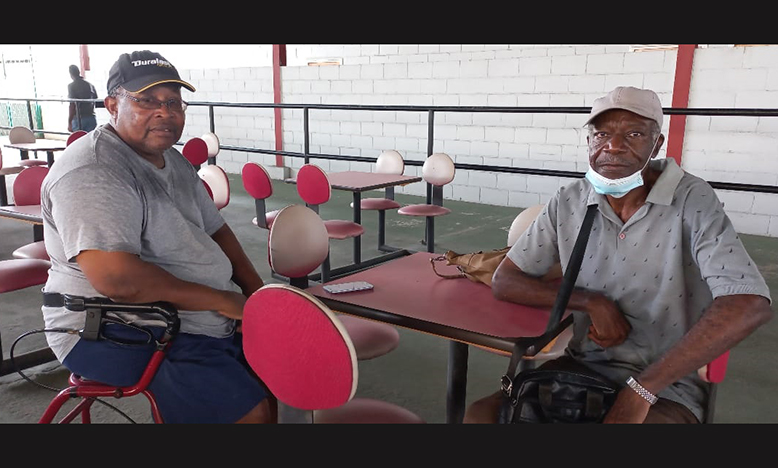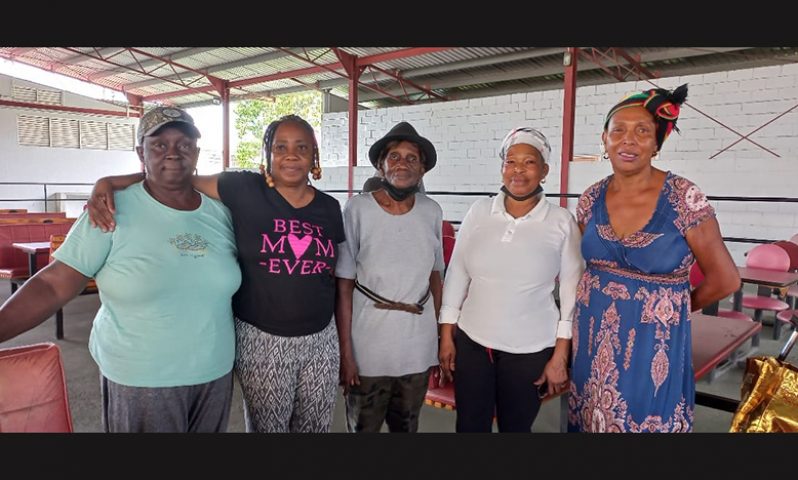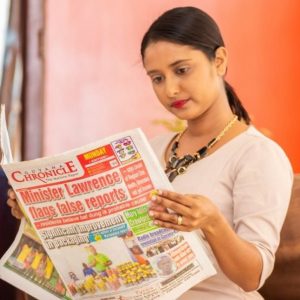–persons needing help encouraged to join
THE Stroke Survivors Support Group, officially launched recently, is continuing to make a real difference in the lives of many patients who would’ve suffered a stroke or neurological disorder, and needed practical help to recover after being discharged from the hospital.
The 60 or so registered members of the group were fortunate enough to be referred to it, since there are many patients across the country who are unaware of the services being offered, and how they can access them.
“There are lots of people who are not aware of our services, or are in the far-flung areas and are unable to have access to a department. So they just lie there thinking that’s the end for them,” Rehabilitation Assistant Gracella Bacchus has observed.

She was present last Wednesday at the Soup Kitchen, based in the Palms Geriatric Home on Brickdam, with Physiotherapist Elton Newton assisting patients with their exercises, which many of them diligently show up for every Monday and Wednesday.
Once recently discharged, they’d need a significant amount of help to do the exercises that are so essential to their recovery, but there’s the bigger group that has already made progress that Gracella and Elton allow more freedom to do the exercises on their own.
“Some of them have balance problems, especially the ones who were recently discharged,” Elton pointed out as he noted some of the other purposes that the group serves. “Many of them have high blood pressure and diabetes, and if not controlled, they are at risk for another stroke or medical condition, so we are here to remind them about that, and to make sure that the exercises are done safely.”
ACCESSING THE SERVICE
“We have patients here who had neurological conditions; not all are stroke patients. Some would have had traumatic brain injury, spinal cord injuries, etc. After they would have improved at the Palms clinic, they join the group, and come here two times a week for an hour each to do the therapy exercises,” Gracella explained.
Having been working with persons with disabilities for the past 15 years, her role is now to help the patients go through the exercise programme, get registered with the Disability Commission, remind them about their medication, the need to bring their necessary equipment to therapy, take their ‘meds’ on time, and make arrangements for them to see a doctor at the Palms.
“Depending on the part of the brain that is damaged, some of them don’t understand what you’re saying, and it takes a long time to get the process going. Some of them seem fine, walking and so forth, but they may have communication problems,” Gracella shared.

Elton spoke about some of the benefits that members of the group enjoy. “When they come here, they get to socialise and know they are not the only people going through this. Many of them are at home all the time, and this is the one or two times a week that they get to interact,” he said.
He’s found that in many cases, referrals are not being made from the hospital to the Neuro-clinic at the Palms. “The patient is discharged and sent home; they don’t know what else to do. So we have been advocating that when persons get discharged; once they have a neurological condition, make a referral, and we will take it from there. We will determine whether the person can benefit from physiotherapy, because there are many cases when patients come 10 years after a stroke, and we can do little to help them,” Elton said.
To access the service, **patients need to be referred to the clinic by their doctor. The team at the Palms works by appointment, so the patient can call 225 4711 to obtain a date when they can go for an assessment to be done. “The doctor has to do the referral to the Palms Rehabilitation Department, and a family member can bring in the referral, and we can make a date when we can see that patient. We do an assessment to determine which level they’re at, and then move to treatment,” Elton explained.
‘DISABILITY IS DISABILITY’
Raymond Bovell, Acting Secretary, recalled how the group was disintegrated due to the COVID-19 pandemic. Some members, though, made it a point to continue meeting for their exercises. “We used to exercise at Cuffy, but that place is rotting, so Head of the Rehab Department Barbara Lawrence suggested we come here, and the members agreed,” Bovell said.
The new location provides many benefits: It’s safe, shaded, and very close to the Department, which means that they can have better access to physiotherapists. “We are now getting things back together after ‘COVID’. We have a lot of plans for the group, but we have to take one step at a time. The assistance from Ms. Lawrence is valuable,” Bovell added.

Michael Edghilo is acting as president of the group. “I would like to see this group progress; that’s an ambition of mine,” he shared.
Thula Lee, a member who got a stroke back in 2014 due to high blood pressure, enjoys being a member of the group, because she said it takes off a lot of stress when she is able to meet and interact with others.
In order to benefit from the exercises, though, she has to travel from the Soesdyke Highway to make it for 9am. “It’s for my health and benefit, and that’s why I make the sacrifice,” Thula said. Even as she receives $14,000 in public assistance, finding the money for transportation, medication, and other needs becomes overwhelming at times.
Norma Headley, who is 80 years old, feels the same way, and expressed hope that the disability grant would be extended to her and other stroke patients. “If you’re getting old age pension, they are not giving you the disability grant. But that’s a separate thing. Disability is disability; old age is old age. I have a stroke for the past 11 years. You have certain needs when you have a disability. It’s hard to find money for all these things,” Ms. Headley said.




.png)









